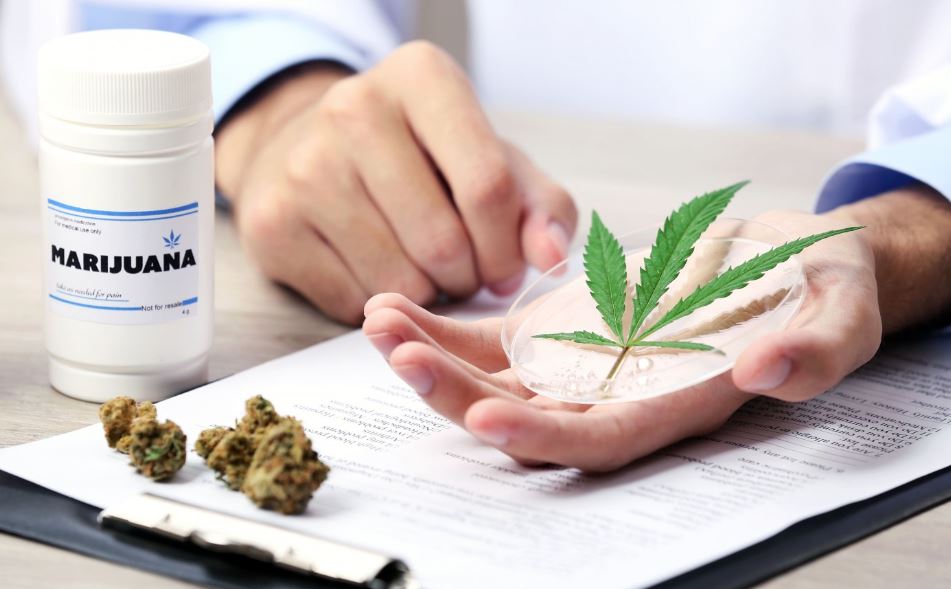For many veterans, managing chronic pain and mental health conditions is a daily challenge. Traditional medications can sometimes fall short, and alternative treatments like medical cannabis are becoming increasingly discussed. Understanding how to navigate the VA system for a medical cannabis card and a VA prescription for marijuana is crucial for those considering this option.
Understanding Medical Cannabis
Medical cannabis, or medical marijuana, refers to the use of cannabis plants or cannabinoids for therapeutic purposes. The active compounds in cannabis, primarily THC (tetrahydrocannabinol) and CBD (cannabidiol), interact with the body's endocannabinoid system to provide relief from various symptoms, including chronic pain, anxiety, and PTSD (post-traumatic stress disorder).
The VA’s Stance on Medical Cannabis
As of now, the U.S. Department of Veterans Affairs (VA) does not provide direct access to medical cannabis. The VA is a federal entity, and federal law still classifies cannabis as a Schedule I substance, making its use and prescription illegal under federal regulations. However, the VA recognizes the complexities surrounding veterans' needs and symptoms and encourages open discussions between veterans and their healthcare providers about alternative treatments.
Obtaining a Medical Cannabis Card
The process for obtaining a medical cannabis card generally involves several steps:
Consult with a Healthcare Provider: To obtain a VA medical cannabis card, you first need to consult with a healthcare provider who is licensed to recommend medical cannabis. This could be a private physician or a specialist in your area. During this consultation, you'll discuss your symptoms, medical history, and treatment options.
Meet State-Specific Requirements: Each state has its own regulations and requirements for medical cannabis use. Some states require proof of residency, a qualifying medical condition, and a formal recommendation from a licensed physician. Research your state’s specific requirements to ensure you meet all criteria.
Submit Application: After receiving a recommendation, you'll need to submit an application to your state's medical cannabis program. This often involves providing medical records, proof of residency, and sometimes a fee.
Receive Your Card: Once your application is approved, you'll receive a medical cannabis card. This card allows you to purchase cannabis products from licensed dispensaries within your state.
VA Prescriptions for Marijuana
Currently, the VA prescription for marijuana for medical cannabis. Instead, veterans seeking to use cannabis for medicinal purposes must obtain their medication through state-licensed dispensaries. Here’s how the process generally works:
Consult with a VA Provider: While the VA cannot prescribe cannabis, you can discuss your interest in medical cannabis with your VA healthcare provider. They can help you understand how cannabis might fit into your overall treatment plan and guide you in seeking a recommendation from a licensed physician.
Obtain a Recommendation: If your VA provider agrees that medical cannabis could be beneficial for you, they can provide a recommendation to seek cannabis treatment from a qualified physician outside of the VA system.
Access State-Licensed Dispensaries: With a medical cannabis card, you can visit state-licensed dispensaries to purchase cannabis products. Be sure to follow your state's regulations regarding the quantity and types of cannabis you can purchase.
Challenges and Considerations
Legal and Administrative Hurdles: The federal prohibition of cannabis creates a complex legal landscape. Veterans must navigate both state and federal laws, which can be challenging. It’s essential to stay informed about the legal status of cannabis in your state and understand how federal regulations might impact you.
Interaction with Other Medications: If you are taking other medications, particularly those prescribed by the VA, it’s crucial to discuss potential interactions with a healthcare provider before starting cannabis. Cannabis can interact with various medications, affecting their efficacy or causing side effects.
Ongoing Research and Policy Changes: The landscape of medical cannabis is continually evolving. New research and legislative changes could affect how veterans access and use medical cannabis in the future. Staying updated on these changes will help you make informed decisions about your treatment options.
Conclusion
Navigating the world of medical cannabis as a veteran involves understanding both state and federal regulations, consulting with healthcare professionals, and managing your treatment plan carefully. While the VA does not directly prescribe cannabis, it is possible to obtain a medical cannabis card through state programs and access treatment through licensed dispensaries.
For veterans seeking relief from chronic pain, PTSD, or other conditions, medical cannabis may offer a viable alternative. However, it's important to approach this option with thorough research, consultation with healthcare providers, and an understanding of the legal and medical implications involved. By staying informed and proactive, veterans can better manage their health and explore all available treatment options.





Comments